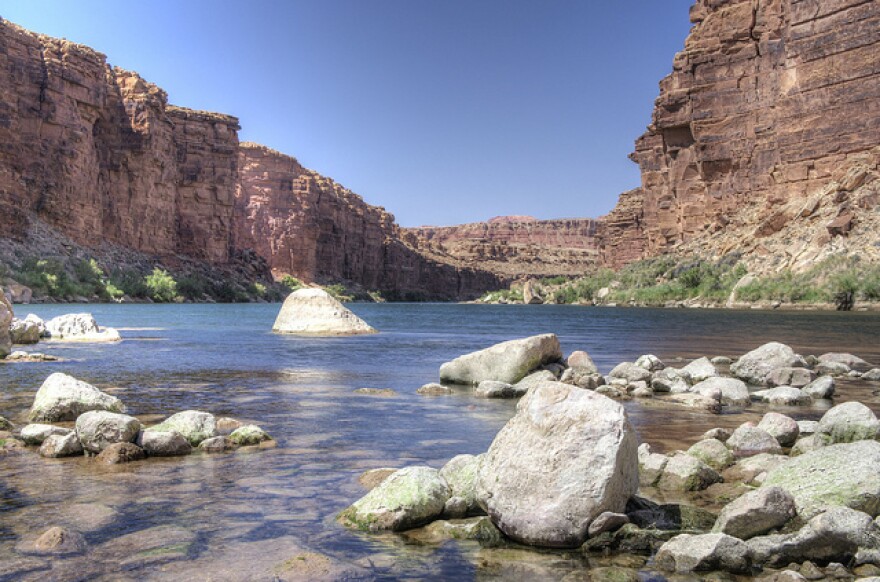The Colorado River Basin Supply and Demand Study is a dry-sounding report on water that many people call the lifeblood of the West, the vast Colorado River system that provides water to 40 million people in Utah and six other states.
A group of nearly two-dozen scholars is asking for a new look at the federal government’s strategy for managing the river.
Brad Udall, senior water and climate researcher at Colorado State University, is one of the academics asking for a reexamination of the West’s water security in years ahead.
“We really would like to have an independent group of folks look at that effort and suggest ways to improve it, suggest ways to also look at some areas that weren’t studied,” he says.
A review by the National Academy of Science would include organizations that don’t have a stake in the study’s findings like the original Bureau of Reclamation study did.
The scholars also want a deeper look at climate change. Past estimates of climate impacts on the Colorado have ranged widely -- from a little more water to flows cut nearly in half -- along with mega-droughts and floods that will complicate life for water managers and users.
Udall says understanding the implications are a top priority.
“Our collective concerns about climate change,” he says, “underpin our desire to have this study done and to look more thoroughly at how climate change is going to impact this river.”
Seven University of Utah scholars in law, science, engineering and social science signed a letter to Interior Secretary Sally Jewell this week requesting the additional study.






